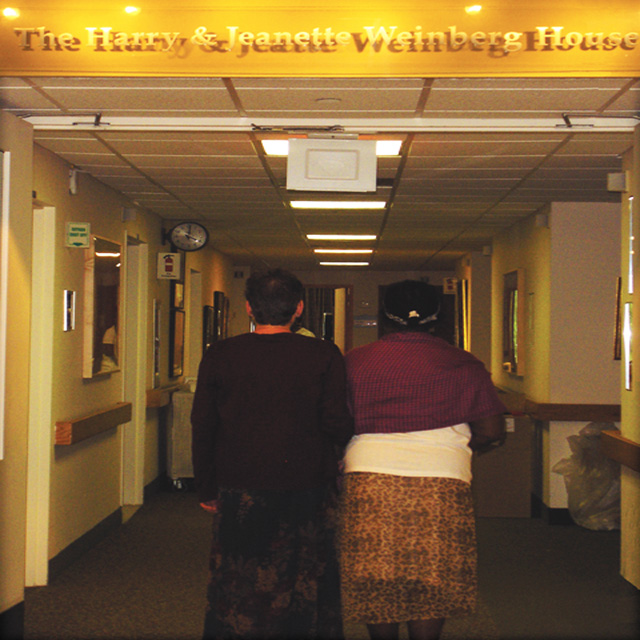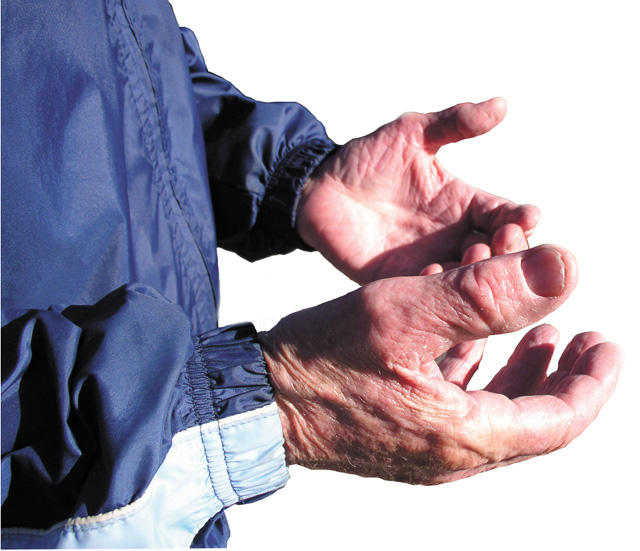by Annika Harris
Bronx Journal Staff Writer
Originally published December 2006
For most of her marriage, Mrs. X did exactly what her husband wanted. She stayed home during the day, rarely visited friends, and suffered through all his emotional and economic abuse because she was afraid of him. From time to time, he would come at her with extreme anger in his eyes. “The look alone will make you do what he wants,” she said. “I always gave in to him.”
When Mrs. X, whose name has been withheld for her protection, left her husband for the second time, she was referred to an elder abuse shelter at the Hebrew Home for the Aged in Riverdale. Here, in 2004, the Weinberg Center was established to provide protection for elder-abuse victims through prevention, intervention, and research.
As the older population grows, so, too, will the problem of elder abuse. It, in fact, became the subject of tabloid headlines last summer when friends of the socialite and philanthropist, Brooke Astor, 104, went to court to remove her son, Anthony Marshall, 82, as her legal guardian, saying that he had penny-pinched on medical care, forced his mother to live in wretched, uncomfortable conditions, and sold her paintings against her will in order to save as much of her $45 million fortune as possible for himself.
As part of the Elder Abuse Initiative, the Weinberg Center partners with the Bronx District Attorney’s office, ElderServe, the Hebrew Home’s Community Service Division, and the Bronx Borough Office of Adult Protective Services. The Weinberg Center is also a resource for older adults in Manhattan and Westchester County. Its main component is Weinberg House, an elder-abuse shelter on the campus of the Hebrew Home, which both houses victims and provides them with counseling, medical care, and legal services.
“This is the only comprehensive elder-abuse shelter that we are aware of in the United States,” said Ann Marie Levine, director of the Center, adding that more shelters like this do not exist because the public has not yet realized the extent of elder abuse. “It’s like 25 years ago with the child-abuse initiative. We’re in the same stage with this type of abuse.”
Elder abuse, like domestic violence, includes physical, emotional, financial, and sexual abuse. Both neglect by others and self-neglect are big problems for many older people. Joy Solomon, managing attorney at the Weinberg Center, said that even self-neglect is under-reported, and elders are often isolated. “They are a vulnerable population, but they’re not eager, even if you know about them, to seek assistance,” she said.
Although elder abuse is similar to domestic violence, traditional domestic violence shelters aren’t always helpful to seniors, explained Solomon. Seniors often have limited mobility or need assistance with bathing, brushing, or toileting. “Their issues are different from younger women’s issues,” she said. “So the social and psychological needs being addressed in a regular shelter wouldn’t [help an older person].” Some elder-abuse victims also have Alzheimer’s disease or dementia and need a great deal of assistance. In addition, domestic violence shelters don’t accept men, who can be victims of elder abuse as well.
 When Mrs. X left her husband the first time, she went to a traditional domestic violence shelter. She said she was the only white woman; most were in their 20s, and 36 children also lived there. Mrs. X eventually returned to Mr. X. “There is no housing for a woman of middle age in domestic violence,” she said.
When Mrs. X left her husband the first time, she went to a traditional domestic violence shelter. She said she was the only white woman; most were in their 20s, and 36 children also lived there. Mrs. X eventually returned to Mr. X. “There is no housing for a woman of middle age in domestic violence,” she said.
But Mrs. X, whose neck and chest bore visible bruises, said she left her husband a second time because she couldn’t deal with his negative comments, his refusal to take responsibility for his actions, or his controlling nature. He wouldn’t even allow her to make simple decisions about their home. “There were things I’d have loved to have [bought], but I was scared. I knew his reaction would be like a volcano ready to erupt,” she said.
Unlike Mrs. X, most elder-abuse victims at the Weinberg Center suffer at the hands of their children. In most cases, Solomon explained, the adult child depends on a parent for shelter and money, and the parent depends on the child for basic needs and other assistance. “This inter-dependence and vulnerability create the scenario for abuse,” Solomon said.
At the Weinberg Center, after an abused person enters the facility, she must abide by a two-week, no-visitation period in order to focus on her own needs. Then the social worker decides which family members would be helpful.
An elder in the program is protected in several ways: First, the facility is secure. No one can enter the campus without going through a secure front gate. Also, Solomon said, she can protect a victim by obtaining an order of protection or, if necessary, a criminal order.
The elder facility is not separate from the rest of the nursing home. “We don’t ostracize and say, ‘This is the elder-abuse unit.’ You can walk through the facility and not realize who is who,” said Levine. Victims, she said, find that very important.
The Weinberg Center also offers training, education, and outreach to law enforcers, doctors, bankers, doormen, and the public. The police, said Solomon, should be as concerned about elder abuse as they are about child abuse, and doctors should realize it is a medical problem. In addition, elders need to be educated on how to protect their finances from strangers, friends, roommates, and even from their children.
The Weinberg Center gives elder-abuse victims the means to start over, in part, said Levine, because “people have that time to themselves and see that there are other options. They get stronger and say, ‘This is not the way I want to live the rest of my life.’ ”
Mrs. X said she likes staying at the Weinberg House and enjoys the staff. “I do have peace,” she said. “I don’t have the [fear] of the door opening and I jumping.”
She plans to get her own apartment — and a divorce – and admits that, emotionally; some days are better than others. “I know that at the end of [what] I’m going through,” she said, “it’s going to be a better place.”




